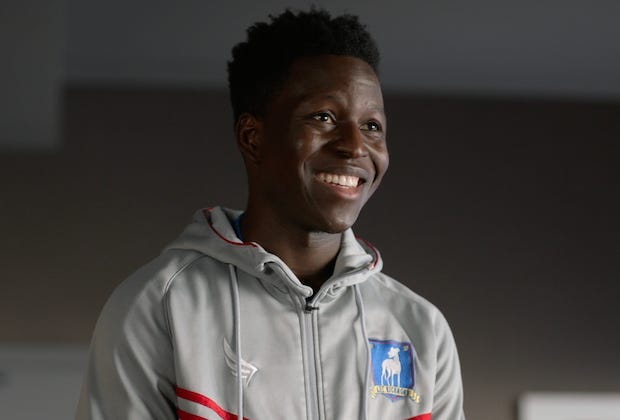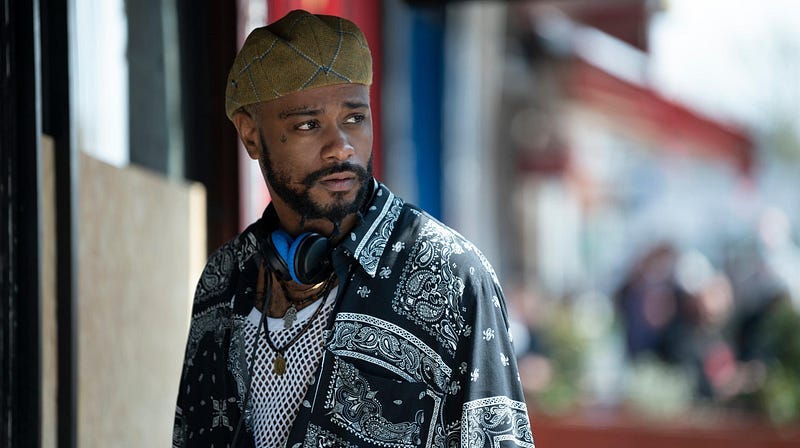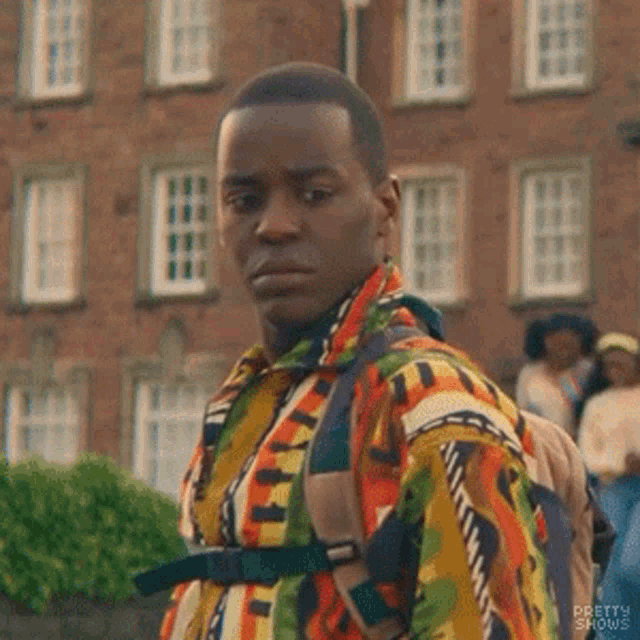Is there any value in paying attention to it?
In the absence of familiarity or historical awareness people often learn about other communities through entertainment — TV most prominently. It’s easy due to how digestible and engaging the medium is all at once. This unfortunately causes large-scale cultural misunderstandings when said communities are portrayed in stereotypical or oversimplified manners. In modern times this has been combated with more authentic and diverse representation, mirroring actual people's experiences. Have these western strides made it to the shores of Nigeria?
There are always massive issues with condensing the behavior of a large group of people into singular traits. What traits are widespread enough to use? What kind of stories can be enhanced by these traits? What will the cultural impact be of their use? Aside from the impoverished theme consistent in most African depictions, let’s look at the common trope of Nigerians and the 419 scam. In this trope, a character is contacted by a Nigerian prince who promises the victim a significant amount of money in return for a small up-front payment that will help the prince acquire his own fortune. This trope is commonly used to show how gullible or unintelligent a character is given how well-known the scam is but in a vacuum could unintentionally leave the viewer with the impression that Nigerians are just typically scammers. Nowadays this trope has been subverted or exaggerated in more creative ways but could leave the wrong impression absent other stories surrounding Nigerians. My theory is that these and other trite stereotypes are being pushed out in favor of a more multi-dimensional view of Nigerians due to the growth of one of Nigeria's most lucrative exports — immigrants.
Nigerians have been resettling to the west in mass since the 1970s, specifically in the U.S and U.K. This movement has been fuelled by the country’s infrastructural problems, high levels of unemployment, and insecurity with a huge proportion of this resettlement coming from the movement of the elites and the flight of highly skilled/educated labor. Till today western countries create incentives for relatively higher-skilled workers and Nigerians continue to capitalize on this. For instance, in the U.S, Nigerian diasporas outpace Americans and most immigrant groups in holding bachelor's or advanced degrees. This likely contributed to the 79% increase in immigration to the U.S between 2010 and 2019. Nigeria's growth in the West has sequentially increased more on-the-ground interactions with the local populace as well as exposure in numerous realms of pop culture: Afrobeats has taken the music industry by storm, numerous Nigerians have excelled in the English Premier League, Nigerian novelists and academics have an outsized presence in feminism and Nigerians in the diaspora continue to reach the pinnacle of achievements in STEM fields and business. Due to this exposure, more Nigerians have inevitably come under the spotlight and increasingly within the director's lens.
Although not an exhaustive list by any means I see the following characters as a wide enough net to capture what I’ve seen Nigerians represented as in recent western television:
Ted Lasso is a show about an “American Football” coach who is hired to manage an English Premier League Football team —the fictitious Richmond Greyhounds. As you can imagine hilarity ensues when it becomes easily apparent he knows little to nothing about football. He makes up for this with an infectious optimism that shines throughout the show and eventually beams through your heart. In addition, the show manages to unweave the development of numerous characters alongside very witty dialogue and references to the most obscure factoids on pop culture you can imagine. None of this is lost on our supporting Nigerian character.
Sam like our titular character is an extreme optimist with a strong work ethic. At the beginning of the show, he struggles due to being homesick for Nigeria but improves over time after the team throws him a birthday party with gifts from the homeland like chin chin. He eventually moves up from a defender to the midfield and gets involved in numerous goals. Throughout the second season of the show, Sam also conveys a socially conscious bent that often goes against powerful interests.
On the light-hearted end, we start with when he turns down a green soldier toy from Coach Ted. Often times Ted hands out these gifts as a means of connecting with people but Sam politely rejects this saying “ I don’t really have the same fondness for the American military that you do.” Ted swiftly retorts “Right. Imperialism”. In a more serious setting, Sam has to decide what to do when he learns from his father that the oil company sponsoring his team is polluting Nigeria. During Richmond’s next game Sam along with his teammates cover their uniform's sponsor’s logo with black tape in protest. In the post-match interview, Sam takes the bold step of speaking on the sponsor’s misconduct along with the collusion of the Nigerian government.
Sam embodies the virtuous and hardworking beat a lot of Nigerians personify. It is great to see such a strong-willed character like him represented specifically in the Football context. The game is loved by Nigerians and numerous players like Jay-Jay Okocha, Nwankwo Kanu, and John Obi-Mikel. These legends have triumphed convincingly in the English Premier League. It’s great to see that reflected on the small screen as well.
Atlanta is a hard show to describe, on paper, it centers on Earn (a college dropout) trying to manage his cousin Alfred’s (Paper Boi) rap career in the Atlanta rap scene. In execution the show is a hyperrealistic collage of what it means to be black in the West. This is bolstered by the show’s episodic nature which gives it time to delve deep into its themes which often result in hilariously morbid implications. In one episode, a millionaire alumnus comes to his high school to announce its renaming and stated he would donate a million dollars to the school and pay every senior’s college tuition — if they are black. Hilarity ensues as this determination is executed by a panel questioning each eligible student to determine their “blackness”. During the episode, our mixed main character with a black father is rejected by the panel along with a Nigerian student he later meets who wasn’t deemed “black” enough because he and his parents were born in Nigeria. Atlanta invites very uncomfortable conversations about race and identity and manages to postulate the question in a funny matter quite conistently.
In the midst of all the chaos, we have Darius, Alfred’s right hand man, who somehow manages to match the show’s energy with how random and quirky he can be. One random fact about Darius that goes unreferenced for much of Atlanta’s runtime is that he is Nigerian. He left Rivers State, Nigeria for he US as a child. How and under what circumstances? We don’t know. What we do know and are reminded of throughout the show is that despite how aloof and random Darius seems he is very thoughtful and compassionate. This is expressed most clearly in the episode titled “The Streisand Effect”. In said Episode Earn wants to trade his phone for the money. but Darius convinces him to trade it for a katana, claiming he could get more money out of it after a series of trades. By the end of the endeavor, Earn is shocked when he learns the final trade can only occur after a few months, he needed the money immediately for his family. To make up for his misunderstanding Darius gives Earn his phone to trade instead, declaring “we are friends now”. In a recent episode that actually touched on Darius’ Nigerian roots, he takes Sharon, a white female acquaintance, to a restaurant that specializes in Nigerian food. Sharon shows a keen interest in the food and atmosphere of the restaurant, a little too keen. A short time after Darius discovers that Sharon bought the restaurant and serves a rebranded version of the Nigerian dishes in a food truck outside: cheesy jollof rice, mayo puff puffs, and quinoa jollof rice (God help us all). Darius is stunned not just by the whitewashing of his culture but by the speed with which the change occurred.
For a huge number of Nigerians in the diaspora, being Nigerian is not at the center of their lives, being human is and that may take the form of just mirroring their environment. Darius embodies this archetype and breaks the mold of how people expect Nigerians to act. The other reason Darius' character is so great is that he is not necessarily good nor is he always presented in an admirable light. He partakes in some morally questionable things throughout the show in the eyes of many Nigerians and that's ok. Not every character from another community needs to be portrayed in a positive light.
Sex Education is a show about late teens and adults recognizing their sexual desires and working through them for the better of their personal relationships. The series follows an ensemble cast but mainly focuses on the awkward adventures of Otis Milburn and Maeve Wiley after they begin a sex therapy clinic to make money off their peers. From the onset, the show is unabashedly raunchy but it figures out innovative ways to treat its characters' plights with the respect they deserve. Many adults may find this too vulgar, especially in a setting that involves teenagers (akin to criticism levied at Euphoria) but for those who can brave the storm, it provides a mature outlook on the complexity of the sexual reckoning countless youths are stumbling through. Some messages in the show are so universal that the average adult who this is likely aimed at could learn a thing or two as well. Even in Nigeria discussions on gender and its expressions are becoming more common and our resident Nigerian lens in the show provides quite the perspective.
Eric is Otis’ best friend who is gay and from a religious Nigerian family. Eric is the loud, proud, and fun-to-be-around friend a lot of Nigerians come to know or be. He is often the life of the party, frequently adorned in flamboyant and bright clothing embodying the extroverted energy of Nigerian socialites like Bobrisky to a tee. Eric's character breaks stereotypes by focusing on his personal problems outside his sexuality like overcoming issues with Otis, handling bullying, trying to fit in, recovering from an assault, and coming to terms with how to approach his religion. He juggles this personal growth while being a consistently supportive friend to Otis. Despite this subtlety. the show is not afraid to put Eric's Sexuality put in the forefront.
In season 3, Eric’s family decides to go to Nigeria for a wedding, he’s excited to bond with his family members and homeland. Due to homosexuality being illegal in Nigeria, Eric’s family urges him to tone down his expressiveness and avoid discussing his sexuality with his grandma and extended family. As a consequence of his family’s expectations and the legal ramifications, Eric becomes a shell of himself, even playing along as his extended family chides him to find a “good Christian woman”. His mother tries to aid in his efforts by repeatedly interjecting whenever his grandmother asks him about a girlfriend. She too lives a double life, lying about her husband’s profession and other numerous details about her life in England to her family. She has grown accustomed to this but Eric has not. Suppressing himself still hurts. Despite blending in quite well, a photographer at the wedding picks up on Eric’s sexuality and invites him over to an underground gay club where Eric feels the Euphoria of being around people in his homeland who accept him. When Eric arrives home the next morning he confronts his mother about the lies she tells her family and the lies she is making him tell about himself. They reconcile after she expresses how she too wants to be as truthful as Eric is by default but that the process of becoming that person takes time. Upon leaving, Eric shares details about his boyfriend in a gender-neutral tone to maintain his grandmother’s delusion that he has a girlfriend instead.
Eric's depiction invites a deep amount of empathy from its viewers through universal plights everyone goes through and the unique ones he experiences due to being part of a marginalized community.
Conclusion
Sam, Darius, and Eric’s stories are quite distinct but share the common thread of portraying the struggles and triumphs of real people — real Nigerians in the diaspora. The shows excel in their depictions of Nigerians so much because they hold some truth on the evolution of culture. Given no place to easily access the source of their culture, these characters work with what they have. They have to soften it to be able to mold it into something they can fit into the modern day but simultaneously harden it in a way that maintains its authenticity. That includes tossing out some traditions but also holding on to some values more closely. That’s why I pay attention to these western depictions and think people should care about what they have to say to an extent (Nollywood films exist too!). That said, western depictions have made huge strides in diversity and authenticity and will likely supply most audiences with a less caricaturish portrayal of Nigerians.
Images:
[b] https://www.avclub.com/atlanta-review-season-3-episode-6-white-fashion-1848826310
[c] https://tenor.com/es/ver/sex-education-omg-shocked-surprised-oh-my-god-gif-16109568
Sources:
419 Scam:
[1] https://tvtropes.org/pmwiki/pmwiki.php/Main/FourOneNineScam
Nigerian Immigration:
[2] https://www.migrationpolicy.org/article/nigeria-multiple-forms-mobility-africas-demographic-giant
[4] https://www.migrationpolicy.org/article/immigrants-new-origin-countries-united-states-2017
Ted Lasso:
[5] https://ted-lasso.fandom.com/wiki/Sam_Obisanya
Atlanta
[6] https://atlanta.fandom.com/wiki/Darius
Sex Education:







